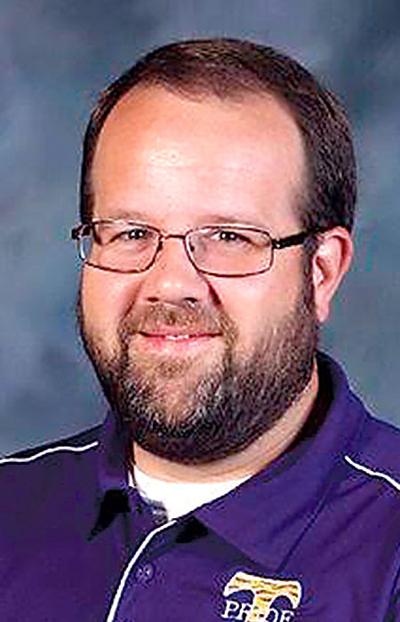A prodigy is defined as “a person endowed with exceptional qualities or abilities.”
In the history of music, there are many stories of people who could compose, arrange or perform before they could even walk or talk.
Wolfgang Amadeus Mozart wrote his first piece at age 3 and was playing for kings and queens by age 5; Michael Jackson was leading his own band by age 6 and was the bestselling artist in the world before he was 19.
The rest of us follow a more traditional route to musical enjoyment. Most of us sing as children, whether around the house or in church and school groups. At some point, we decide to continue singing and playing, or not.
There has been widespread belief in the “open window” concept, which maintains students should not begin instrumental or vocal instruction until the middle years. Obviously, there is no one-size-fits-all philosophy, but most of us are familiar with this structure.
The man who opened that window for me was my middle school band director, Tony Williams, who died last week.
Fresh out of the University of North Alabama, he arrived at Goodwyn Jr. High School in Montgomery and began recruiting new band students. Like a lot of other people, my parents did not want to commit to buying an instrument at first. Mr. Williams assigned me the school-owned baritone horn.
Spotty and smelly, the case was held together with an old rope and a handle fashioned out of duct tape. I struggled mightily with this horn for the first few weeks of band and was on the verge of quitting when Mr. Williams offered to give me private lessons before school.
Before long, I was making a sound and he recommended I move over to the trombone, which uses the same mouthpiece. The lady at Art’s Music Shop who sold my parents the trombone still works there to this day.
Mr. Williams probably never knew he was charting my life’s course to become a music educator. He fed my growing passion for music by loaning me records from his extensive collection, broadening my listening habits. He also made me the editor-in-chief of the music department newspaper when he realized I was also interested in journalism.
Having lost my college choral director Dr. Bill Denison and college band director Dr. Johnny Long over the past year, time hit me hard when I learned Mr. Williams had left us, too. The bookends of my school musical experiences, all gone.
As I was preparing this article for The Tribune, the world learned of the death of rock music pioneer Little Richard.
“It seemed like on Monday there was no rock ‘n’ roll,” said Robbie Robertson of The Band, recalling the early ’50s in the first episode of Rock & Roll, a 10-hour PBS documentary series. “There was Perry Como and Patti Page and the Four Lads. ... And then on Tuesday it was like all these people had been waiting in the chutes, ready to come charging out.”
Cue footage of a wild-looking Richard Penniman pounding the piano and screaming “Good Golly, Miss Molly.”
Richard Penniman was raised in Macon, Georgia, a place too subdued for his outsized personality. He ran away to join the circus — literally — in 10th grade, even performing in drag and in minstrel shows alongside gospel revivals and blues revues. Little Richard, an ordained minister, somehow managed to do it all.
After several years on the road, and having developed his own flamboyant stage show, he made his way to Cosimo Matassa’s studios in New Orleans, where Fats Domino recorded. He didn’t impress anyone at first, but then launched into a dirty blues of his own called “Tutti Frutti.”
And the rest is history.
In thinking about Tony Williams and Little Richard, all I keep seeing in my mind’s eye is that open window.
While Mr. Williams opened a window for his students, Little Richard blasted a window out with his innovations as the architect and creator of what came to be known as rock and roll.
It seems a little quieter now they are gone, but in the words of Mr. Penniman himself: ‘a-wop-bop-a-loo-bop-a-wop-bam-boom.’
Michael Bird is a music teacher for Tallassee City Schools and a longtime columnist for The Tribune.




